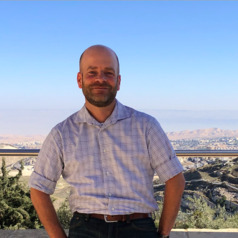
Chad Gibbs
Assistant Professor of Jewish Studies, College of Charleston
Chad Gibbs is an assistant professor and director of the Zucker/Goldberg Center for Holocaust Studies at the College of Charleston. He is a historian of the Holocaust, antisemitism, modern Germany, and war and society. Chad’s current project focuses on Jewish resistance at Treblinka. Chad's work has been supported by the United States Holocaust Memorial Museum, the Fortunoff Video Archive, the George L. Mosse Program in History, and the USC Shoah Foundation, where he remains an Affiliated Researcher. His extensive work in oral histories at several archives contributes teaching and scholarly interests in the collection and analysis of survivor testimonies as well as the generational transmission of knowledge and trauma.
Before academic life, Chad served eight years in the US Army including combat deployment to Iraq. He was wounded there in 2006 and medically retired in 2009. He received his PhD in History from the University of Wisconsin-Madison, his MA from the University of Nebraska at Omaha. and his BA from the University of Wyoming.
Less ![]()
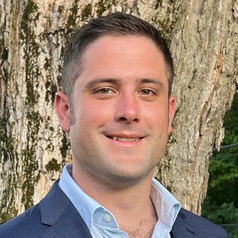
Chad Hecht
Research and Operations Meteorologist, Center for Western Weather and Water Extremes, University of California, San Diego
Less ![]()

Chalchisa Abdeta
PhD candidate, University of Wollongong
I'm PhD candidate at Early Start, University of Wollongong, Australia. My research focuses on children's physical activity, sedentary behaviour and sleep. I am an active member of the International Society for Physical Activity and Health (ISPAH) and the AFRO regional representative for the ISPAH Early Career Network. I've been working on physical activity since 2015. My career aspiration is to be a better researcher in early childhood development & health.
Less ![]()
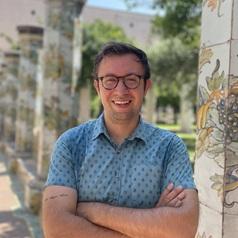
Chance Bonar
Postdoctoral Fellow, Center for the Humanities, Tufts University
Chance Bonar is a Postdoctoral Fellow in the Center for the Humanities at Tufts University, researching and teaching on ancient Mediterranean slavery. He recently completed his PhD at Harvard University in the Committee on the Study of Religion, specializing in the New Testament and Early Christianity. Additionally, he was a William R. Tyler Fellow in Byzantine Studies at Dumbarton Oaks and Instructor of Theology at Boston College.
Less ![]()
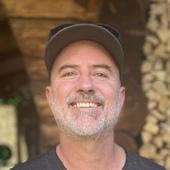
Chancey MacDonald
NERC Independent Research Fellow in Coral Reef Ecology, Newcastle University
Less ![]()
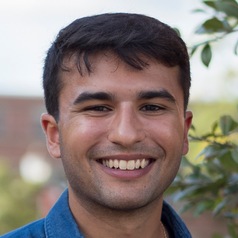
Chand Rajendra-Nicolucci
Research Fellow, Initiative for Digital Public Infrastructure, UMass Amherst
Chand Rajendra-Nicolucci is a research fellow and director of product at the Initiative for Digital Public Infrastructure (iDPI), a new research center based at the University of Massachusetts Amherst. The initiative connects the School for Public Policy, the Department of Communication, and the College of Information and Computer Sciences. iDPI studies the civic and social role of internet platforms, and advocates for approaches to digital infrastructures that treat platforms and supporting technologies as public spaces and public goods, not purely as profit-making ventures.
Rajendra-Nicolucci was previously a research fellow with the Knight First Amendment Institute at Columbia University. He graduated with a B.S.E. in computer science from the University of Michigan.
Less ![]()
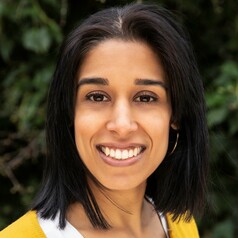
Chand Rakhi
Doctoral Researcher, University of Manchester
Rakhi Chand is a final-year doctoral researcher in the Health Management Group at Alliance Manchester Business School (AMBS). She is studying the obstacles black and minority ethnic women face in the NHS in their career development. The research was shortlisted for 'Best Doctoral Paper' at AMBS in 2022.
She is also a BACP Senior Accredited Psychotherapist; Supervisor to other therapists; and Trainer. As a writer and media representative for the BACP she has contributed to outlets including The Guardian, The Observer, Prospect Magazine and Therapy Today.
Less ![]()
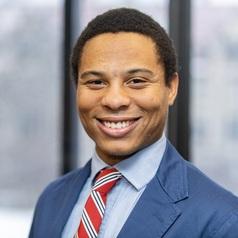
Chandler James
Assistant Professor of Political Science, University of Oregon
Chandler James is an Assistant Professor of Political Science at the University of Oregon. He specializes in American politics with a focus on the U.S. presidency. His research has been published in Presidential Studies Quarterly and has been supported by the American Political Science Association, the University of Chicago Council on Advanced Studies, and the Bradley Foundation. In 2018, he was an APSA MFP Fellow. He received a PhD, MA, and AB in Political Science from the University of Chicago.
Less ![]()

Chandni Desai
Assistant professor, Education, University of Toronto
Chandni Desai is an Assistant Professor in the Critical Studies of Equity and Solidarity at the University of Toronto (with a graduate appointment to Women and Gender Studies). Her areas of research, teaching and supervision include: comparative settler colonialisms, Palestine studies, the politics of the Middle East, state violence (carceral politics, militarism and war), cultures of resistance and revolution, political economy, third world internationalism, solidarity, memory, oral history, anti-racism and feminism.
Dr. Desai is working on her first book Revolutionary Circuits of Liberation: The Radical Tradition of Palestinian Resistance Culture and Internationalism. In it she excavates the history of the radical tradition of Palestinian resistance culture, specifically the cultural institutions, archives and radical arts practices established by Palestinian revolutionaries in the PLO. She maps the circulation of resistance culture across geographies in the 20th and 21st century; unearths the legacy of anti-colonial and internationalist cultural production, thought, consciousness and praxis against settler colonial dispossession, imperialism, warfare and genocide; and attempts to trace displaced, lost, stolen and captive Palestinian material culture.
Dr. Desai is the principal investigator on a Social Science and Humanities and Research Council Insight Development Grant (SSHRC IDG) for her project “Transnational Cultural Solidarities: Afro-Asian Pasts, Present and Futures” (2021-2023). In 2020 her research on “Tracing Legacies: Afro-Asian Transnationalism during Third World Decolonization and the Cold War”was selected for the Jackman Humanities Scholars in Residence.
Dr. Desai hosts the Liberation Pedagogy Podcast, a site to learn about the praxis of political struggle, revolution and internationalism in the quest towards freedom making. Another pedagogical innovation she is currently working on is teaching with anti-colonial archives (with Dr. Rafeef Ziadah). Desai was the receipt of the 2019-2020 June Larkin Pedagogy Award for her work on liberation pedagogies, the 2021 Ragini Ghosh Excellence in Teaching Award and CCGSE Mentorship Award.
Less ![]()

Chanel Contos
Chair of Global Youth Commitee for Global Institute for Women's Leadership, Australian National University
Chanel Contos founded Teach Us Consent, a campaign that mandated consent education in Australia.
Chanel studied a Bachelor of Commerce and a Bachelor of Arts at the University of New South Wales, where she also taught multiple Information Systems courses after graduation.
Chanel completed her Masters of Education, Gender and International Development at University College London with distinction.
In 2032, she published her first book Consent Laid Bare, which is an adaptation of her Masters dissertation.
Chanel consults for multinational companies and Governments on sexual violence prevention and was appointed by Julia Gillard to chair the Global Institute for Women’s Leadership’s Youth Advisory Committee at The Australian National University and Kings College London.
Her work has been recognised domestically and internationally. In 2022 she was listed as one of the BBC’s 100 inspiring and influential women worldwide.
Less ![]()
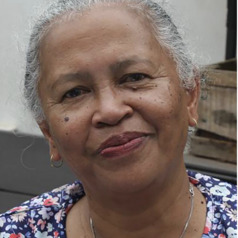
Chantal Radimilahy
Senior Lecturer, Archaeology, University of Antananarivo, Université d’Antananarivo
Chantal Radimilahy is senior lecturer in archaeology at the University of Antananarivo, and former director of the Institute of Civilizations/Museum of Art and Archaeology in Antananarivo. She holds a PhD degree from the Sorbonne University and a second PhD degree from the University of Uppsala. She has worked on ancient iron metallurgy and has undertaken archaeological research in many parts of Madagascar, including Mahilaka.
Less ![]()
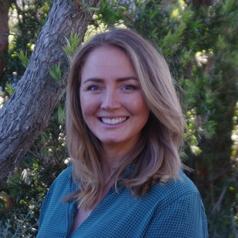
Chantel Foord
Research Associate, Marine Mammal Foundation, PhD researcher, RMIT University
Less ![]()

Chantelle Gray
Professor in the School of Philosophy, North-West University
Chantelle Gray is a contemporary Continental philosopher whose interests span philosophy, critical algorithm studies, queer theory and gender studies, cognitive studies and experimental music studies. The interdisciplinary nature of her work allows her to ask critical questions about how to take care of humans, technologies and ecologies in the digital age. Her books include Deleuze and Anarchism, co-edited with Aragorn Eloff (2019, Edinburgh University Press) and Anarchism after Deleuze and Guattari (2022, Bloomsbury).
Less ![]()
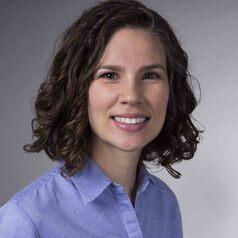
Chantelle F. Sephton
Associate professor, Faculty of Medicine, Department of Psychiatry and Neuroscience, Université Laval
Dr. Chantelle F. Sephton received her Bachelor’s if Science in Biochemistry from the University of Saskatchewan in Saskatoon (2002) and her PhD in Psychiatry from the University of Saskatchewan (2007). She did her postdoctoral studies at the University of Texas (UT) Southwestern Medical Center at Dallas under the mentorship of Dr. Gang Yu in the Department of Neuroscience (2007-2014). She started her lab at Université Laval in the CERVO Brain Research Centre in 2014 and is currently an Associate Professor in the department of psychiatry and neuroscience.
Less ![]()

Chantrell Frazier
Assistant Professor of Chemistry and Food Science, Framingham State University
Dr. Frazier is the first African-American woman to earn a PhD in Biochemistry from Florida International University. Her research has focused on the application of human scent forensics in subject identification.
Less ![]()
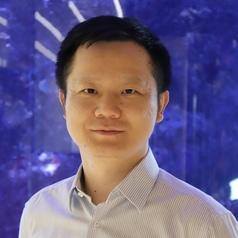
Chao Chen
Deputy Director, Enterprise AI and Data Analytics Hub, RMIT Univeristy, RMIT University
Dr Chao Chen is currently a Senior Lecturer in AI and Data Analytics at RMIT University. He received his PhD degree in Information Technology from Deakin University in 2017. From 2016 to 2018, he worked as a Data Scientist at Telstra to create customer value from huge and heterogeneous data sources using advanced analytics and big data techniques. He is conducting interdisciplinary research between cybersecurity and artificial intelligence (AI), such as AI for cybersecurity and security issues in AI models. He has published more than 60 research papers in high quality journals and conferences, such as IJCAI, ESORICS, PETS and ASIACCS. One of his papers was the featured article of that issue (IT Professional Mar.-Apr. 2016). His work has been cited more than 2100 times with h-index 22 from Google Scholar.
Less ![]()
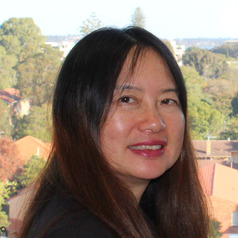
Chaojiao Sun
Research Group Leader, physical oceanographer, CSIRO
Chaojiao is a senior researcher at CSIRO who studies how the movement of the ocean affects the climate and the environment. Chaojiao has a wide range of research interests including understanding how ocean currents and tides could potentially protect the Great Barrier Reef and other coral reefs under climate change, providing science-based solutions to support the blue economy through ecological predictions about the environment, deriving detailed climate projections using dynamical downscaling and machine learning approaches, and developing decision support tool for forecasting of harmful algal blooms.
Less ![]()

Char Newton
Clinical Assistant Professor, University of North Dakota
Dr. Charmeka Newton is a fully licensed psychologist and Clinical Assistant Professor and Director of the School Counseling Program in the College of Education & Human Development at the University of North Dakota. Dr. Newton is also the owner of Legacy Mental Health Services, PLLC. She has over 10 years of experience in clinical, academic, and community settings, including teaching experience at both undergraduate and graduate levels of higher education. Her areas of expertise include multicultural counseling, research methods, tests and measurement, career counseling, and clinical supervision of master’s-level counseling practitioners and students. In addition to her clinical and teaching expertise, Dr. Newton is also a member of the Michigan Board of Psychology, appointed by Governor Gretchen Whitmer. She is a sought after psychology expert featured in prominent magazines and newscasts, recently featured on the June 2020 broadcast of West Michigan Woman, where she discussed how to have difficult conversations with your family about race. She is also co-author of the soon to be released book, Black Lives Are Beautiful: 50 Tools to Heal from Trauma and Promote Positive Racial Identity, published through Routledge, an imprint of Taylor & Francis Group, LLC., as well as co-author of the peer-reviewed article, “Culturally Adapted Cognitive Behavior Therapy as a Model to Address Internalized Racism Among African American Clients,” published in the April 2022 issue of the Journal of Mental Health Counseling.
Education:
• PhD, Counseling Psychology, Western Michigan University, 2009
• MA, Community Psychology & Social Change, Pennsylvania State University, 2004
• BA, Psychology and Communications, University of Michigan, Dearborn, 2002
Awards:
• Michigan Psychological Association, 2022 Distinguished Psychologist Award
• West Michigan Woman Brilliance Award Finalist, 2020
Professional Appointments:
• Michigan Board of Psychology, December 2019-Present
Appointed by Governor Gretchen Whitmer
Media Appearances:
• “How to Have Difficult Conversations About Race With Your Family,” West Michigan Woman Broadcast, Grand Rapids, MI, June 2020
• “Managing Your Emotional Health During a Pandemic,” WOODTV, Grand Rapids, MI, May 2020
• “When to End a Toxic Friendship,” West Michigan Woman, January 28, 2019, https://westmichiganwoman.com/relationships/2278-when-to-end-a-toxic-friendship
Recent Publications:
Steele, J. M., & Newton, C. S. (2022). Culturally adapted cognitive behavior therapy as a model to address internalized racism among African American clients. Journal of Mental Health Counseling, 44(2), 98-116.
Less ![]()
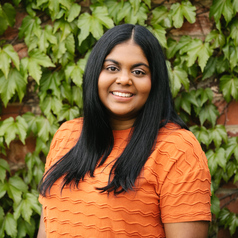
Charishma Ratnam
Research Fellow, Deakin University
Charishma Ratnam is a Human Geographer and Alfred Deakin Postdoctoral Research Fellow at the Alfred Deakin Institute for Citizenship and Globalisation (ADI) at Deakin University. Her research spans a number of areas, primarily focusing on refugee and migrant experiences and resettlement, inclusion, and home-making practices. Charishma is particularly interested in developing novel research approaches including digital, visual, ethnographic, and walking methods with participants to better understand their experiences of/in/with place(s).
Less ![]()

Charlène Aubinet
Charlène Aubinet is a postdoctoral researcher in the Psychology and Neuroscience of Cognition Research Unit and in the Coma Science Group – GIGA-Consciousness at ULiège. She was graduated in 2020, with a PhD on residual language abilities in patients with disorders of consciousness. Her postdoctoral research mainly aims to dissociate language and consciousness impairment and recovery in these post-comatose patients with severe brain injury. Her interests include the validation of behavioral and language-specific assessment tools, neuroimaging research and language rehabilitation in this challenging population, as well as consciousness and implicit/explicit language processes.
Less ![]()
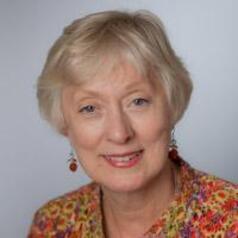
Charlene Harrington
Professor Emeritus of Social Behavioral Sciences, University of California, San Francisco
Charlene Harrington, PhD, RN, (Co-Principal Investigator) has been a professor of sociology and nursing at the University of California, San Francisco (UCSF) since 1980, specializing in long-term services and supports (LTSS) policy and research. She was elected to the Institute of Medicine (IOM) in 1996 and has served on various IOM committees. In 2002, she and a team of researchers designed a model California LTSS consumer information website, funded by the California HealthCare Foundation, which she continues to maintain and expand. Since 1994, she has been collecting and analyzing trend data on Medicaid home and community-based services programs and policies, funded by the Kaiser Family Foundation. In 2003, Dr. Harrington became Principal Investigator of the UCSF Center for Personal Assistance Services, a position held until 2012.
Less ![]()
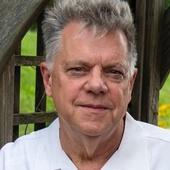
Charles Cantalupo
Distinguished Professor Emeritus of English, Comparative Literature, and African Studies, Penn State
Less ![]()
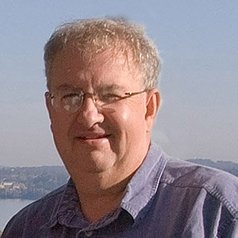
Charles Colgan
Director of Research for the Center for the Blue Economy, Middlebury Institute of International Studies
Dr. Charles Colgan is the Director of Research for the Center for the Blue Economy (CBE) overseeing the conduct of research activities and serving as Editor-in-Chief of the Journal of Ocean and Coastal Economics (JOCE). In addition, he serves as adjunct faculty in the International Environmental Policy Studies program.
Dr. Colgan served as a consultant with the National Ocean Economics Program (NOEP) for more than 14 years. The NOEP was created in 1999 by Dr. Judith Kildow at MIT and began producing its annual ocean economic databases with the subsequent hiring of Dr. Colgan the following year. While there were several articles and a report about the U.S. ocean economy published before 1999, the launch of the NOEP laid the foundation for a new field of study based on a unique methodology, with consistent time series data that allowed the public to track trends over time. During its 15-year history, NOEP has created the field of ocean and coastal economics, and its methodologies have been used by over 20 countries around the world. It is extremely well-respected in the U.S. and internationally, and it forms the foundation of the CBE research program. It has more than 2,000 regular users across all sectors and geographies in the U.S., and more than 37 nations. It is considered by many researchers to be the best source of data on ocean and coastal economics.
In 2013 Dr. Colgan and Dr. Jason Scorse, the Director of the CBE, began the development of the Journal of Ocean and Coastal Economics (JOCE), which will launch its first volume in January, 2015. With a distinguished editorial board and its open review process, JOCE will further solidify the CBE’s position as the leader in the ocean and coastal economics field, and help foster an international community of researchers and practitioners. Upholding the CBE commitment to open access, the journal will be freely available to all: there are no fees to authors or readers.
Until JOCE, those wishing to share research in this field outside of fisheries have used outlets that specialized in economics, but not specific to oceans and coasts. JOCE is the first in this growing field. Contracting with the Monterey Institute’s world-class translators, JOCE will provide abstracts of all papers in Arabic, Chinese, French, Korean, Japanese, Portuguese, and Spanish.
Prior to his role as Research Director for the CBE, Dr. Colgan served as a Professor of Public Policy and Management in the Edmund S. Muskie School of Public Service at the University of Southern Maine. Dr. Colgan was the Chair of the Muskie School’s PhD Program in Public Policy and is a Senior Research Associate in the USM Center for Business and Economic Research. His long term economic forecasts are used by the Maine Department of Transportation and the Economic Development Districts of Maine. Prior to joining the University of Southern Maine, he served in the Maine State Planning Office, was State Economist, and Director of Natural Resource and Economic Policy.
Less ![]()
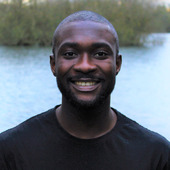
Charles Emogor
Schmidt Science Postdoctoral Fellow, Department of Zoology, University of Cambridge
Less ![]()
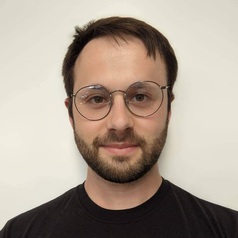
Charles Feigin
Postdoctoral Fellow in Genomics and Evolution, The University of Melbourne
My research seeks to understand how biodiversity arises through evolutionary modification of animal development. I use diverse experimental approaches ranging from computational genomics to molecular biology and morphometrics. I primarily work with non-traditional model species and have a special emphasis on marsupials. My recent projects focus on the evolutionary origins of mammalian skin and skeletal adaptations and the use of genomics in conservation.
I have a BSc from the University of Connecticut, where I majored in Molecular in Cell Biology and minored in Ecology and Evolutionary Biology. I completed my PhD in BioSciences at the University of Melbourne in 2018, focusing on comparative genomics. I then worked for ~5 years as a Postdoctoral Research Associate and NIH NRSA Fellow in the Department of Molecular Biology at Princeton University, where I studied developmental gene regulatory networks underlying adaptive traits. I am currently a Postdoctoral Fellow and Genomics Pod Leader in the evolution and conservation focused TIGRR lab at UniMelb.
Less ![]()
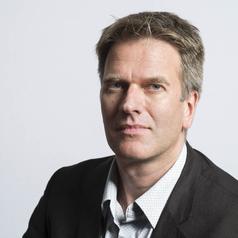
Charles Fernyhough
Professor of Psychology, Durham University
Charles Fernyhough is Director and Founder of InnerScape, harnessing the science of inner experience to enhance user experience across the creative and tech industries. He is a Professor of Psychology at Durham University and Director of the Centre for Research into Inner Experience. His fiction and non-fiction books have been translated into thirteen languages.
Less ![]()
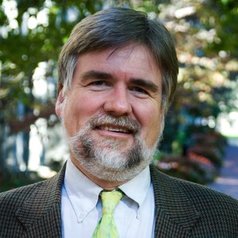
Charles Gardner Geyh
Professor Geyh teaches and writes in the areas of judicial conduct, ethics, procedure, independence, accountability and administration. He is the author of Courting Peril: The Political Transformation of the American Judiciary (Oxford University Press, forthcoming 2015); When Courts and Congress Collide: The Struggle for Control of America's Judicial System (University of Michigan Press 2006) and Disqualification: An Analysis Under Federal Law (2d ed. Federal Judicial Center 2011); coauthor of Judicial Conduct and Ethics (5th ed., Lexis Law Publishing 2013) (with Alfini, Lubet and Shaman); and Understanding Civil Procedure (5th ed. 2013) (with Shreve and Raven-Hansen); and editor of What's Law Got to Do With it? What Judges Do, Why They Do It, and What's at Stake (Stanford University Press 2011). His scholarship has appeared in over 60 books, articles, book chapters, reports and other publications.
Geyh has served a number of governments and governmental organizations. He has been a consultant to: the Parliamentary Development Project on Judicial Independence and Administration for the Supreme Rada of Ukraine; the United States Department of Justice in the corruption trial of Pennsylvania Judge Mark Ciavarella; the Administrative Office of California Courts Task Force on Judicial Campaign Practices; the Pennsylvania House of Representatives on the impeachment and removal of Pennsylvania Supreme Court Justice Rolf Larsen; and the National Commission on Judicial Discipline and Removal. In addition, he has served as an expert witness in the United States House and Senate on the impeachment and removal of District Judge G. Thomas Porteous and as legislative liaison to the Federal Courts Study Committee.
Geyh has also assisted a range of other organizations on issues relating to the administration of justice. He has served the American Bar Association as director of and consultant to its Judicial Disqualification Project and as Reporter to four Commissions (the Joint Commission to Evaluate the Model Code of Judicial Conduct, the Commission on the 21st Century Judiciary, the Commission on the Public Financing of Judicial Campaigns, and the Commission on the Separation of Powers and Judicial Independence). He has also served on the Board of Directors of the Justice at Stake Campaign; as Reporter to the Constitution Project Task Force on the Distinction between Intimidation and Legitimate Criticism of Judges; as Director of the American Judicature Society's Center for Judicial Independence; and as chair of the editorial committee for the journal Judicature. He is a member of the American Law Institute, and a Fellow of the American Bar Foundation and of the Pound Civil Justice Institute.
A recipient of the Leon Wallace Teaching Award and a two-time recipient of the IU Trustees' Teaching Award, Geyh has taught courses on civil procedure, legal ethics, federal courts, judicial conduct, and the relationship between courts and legislatures.
Following graduation from University of Wisconsin Law School, Geyh clerked for Judge Thomas A. Clark of the U.S. Court of Appeals for the Eleventh Circuit. He then worked as an associate at Covington & Burling in Washington, D.C., and served as counsel to the U.S. House of Representatives Committee on the Judiciary. Professor Geyh began his teaching career in 1991 at the Widener University School of Law and joined the law faculty at Indiana in 1998.
Less ![]()
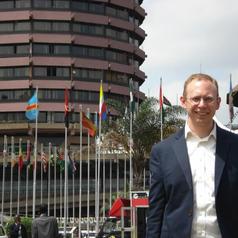
Charles Hankla
Charles R. Hankla is associate professor of political science at Georgia State University in Atlanta. He received his PhD in 2005 from Emory University, and he also holds degrees from Georgetown University and the London School of Economics.
Charles' research is in the fields of comparative and international political economy, and he has a particular interest in political institutions as they relate to fiscal decentralization, budgeting, and trade and industrial policy. His research has included cross-national, quantitative studies and also field-work based analyses of India and France. Charles' previous work has appeared in such journals as the American Political Science Review, International Studies Quarterly, and Comparative Political Studies. Charles is also an active consultant, particularly on topics related to fiscal decentralization and public budgeting. Most recently, he has worked on projects related to Vietnam and Egypt that were supported by USAID and the UNDP. Finally, Charles is a member of the Scholar Strategy Network, an organization which seeks to bring academic research to the attention of policy-makers.
Less ![]()
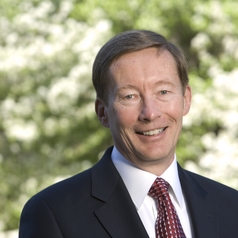
Charles J. Dunlap, Jr.
I served as a military lawyer (judge advocate) for 34 years before retiring in 2010 as a major general in the US Air Force. I am a Professor of the Practice and Executive Director of the Center on Law, Ethics and National Security at Duke Law School.
Less ![]()
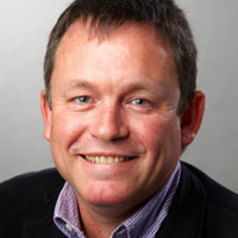
Charles Lees
Professor Charles Lees joined the Department in September 2011. Previously he was at the University of Sheffield.
He is currently a Visiting Professorial Fellow at the University of Sussex and a Visiting Fellow at the University of Birmingham. He has also held visiting fellowships at the University of California San Diego, the Australian National University, and the University of Sydney.
He has written extensively on comparative politics, policy, and methodology as well as providing media commentary and research and advice for organisations such as the BBC, Sky News, Australian Labor Party, the Green Party of Aotearoa New Zealand, and the Scottish Executive.
Less ![]()

Charles Lehnen
Doctoral Candidate in Integrative and Evolutionary Biology, USC Dornsife College of Letters, Arts and Sciences
I am an ecologist driven to unravel the complexities of community dynamics and the cascading trophic effects that shape our natural world. My career has led me through a variety of roles, from leading a natural history study of Galapagos Diptera across five islands, assessing potential bat habitat in the man-made abandoned mineshafts of New Mexico, to conducting transects across the Nevada desert to track the population dynamics of Mojave Desert tortoises.
Less ![]()
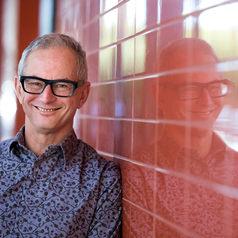
Charles Livingstone
Charles is a Senior Lecturer in the School of Public Health and Preventive Medicine at Monash University. His principal research interests are in gambling as a public health issue, social theory of gambling, ethics of gambling research and reform of gambling regulation.
Less ![]()
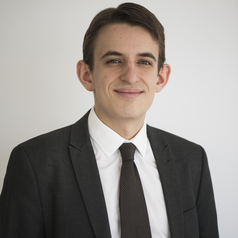
Charles Read
Fellow in Economics and History at Corpus Christi College, University of Cambridge
Charles Read is a British Academy Postdoctoral Fellow in History and an Affiliated Lecturer in Economics and History at the University of Cambridge. He is also a Fellow, Tutor, College Lecturer and Director of Studies at Corpus Christi College and a Research Associate at the Centre for Financial History at Darwin College.
He has recently published two books: Calming the Storms: the Carry Trade, the Banking School and British Financial Crises Since 1825 (2023) and The Great Famine in Ireland and Britain’s Financial Crisis (2022). His previous research has won the Thirsk-Feinstein PhD Dissertation Prize, the T.S. Ashton Prize, and the New Researcher Prize of the Economic History Society and a prize from the International Economic History Association for the best doctoral dissertation completed in 2015, 2016 or 2017. He has also worked as a writer and editor at The Economist and as a research associate at an investment bank in London.
Less ![]()
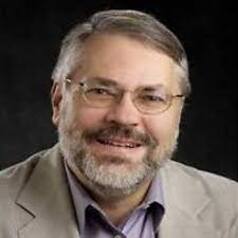
Charles Rupprecht
Affiliate Professor of Veterinary Medicine, Auburn University
Over the past 40 years I have studied various aspects of lyssaviruses, including their diagnosis, pathobiolgy, epidemiology, prevention and control. I am one of the founders of World Rabies Day and a founding international steering committee member of the Rabies in the Americas, Inc. Conference. To date, I have coauthored more than 400 papers in the peer-reviewed literature and maintain editorial duties at several scientific periodicals, including the Journal of Wildlife Diseases. Currently, I am a global biomedical consultant, Affiliate Professor at Auburn University, and an Expert Technical Advisor on Rabies for the Pan American Health Organization and the World Health Organization.
Less ![]()
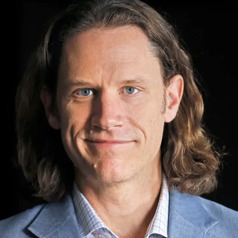
Charles Sims
Professor of Economics, University of Tennessee
Charles Sims is Professor of Economics in the Haslam College of Business.
Less ![]()
- Market Data



















